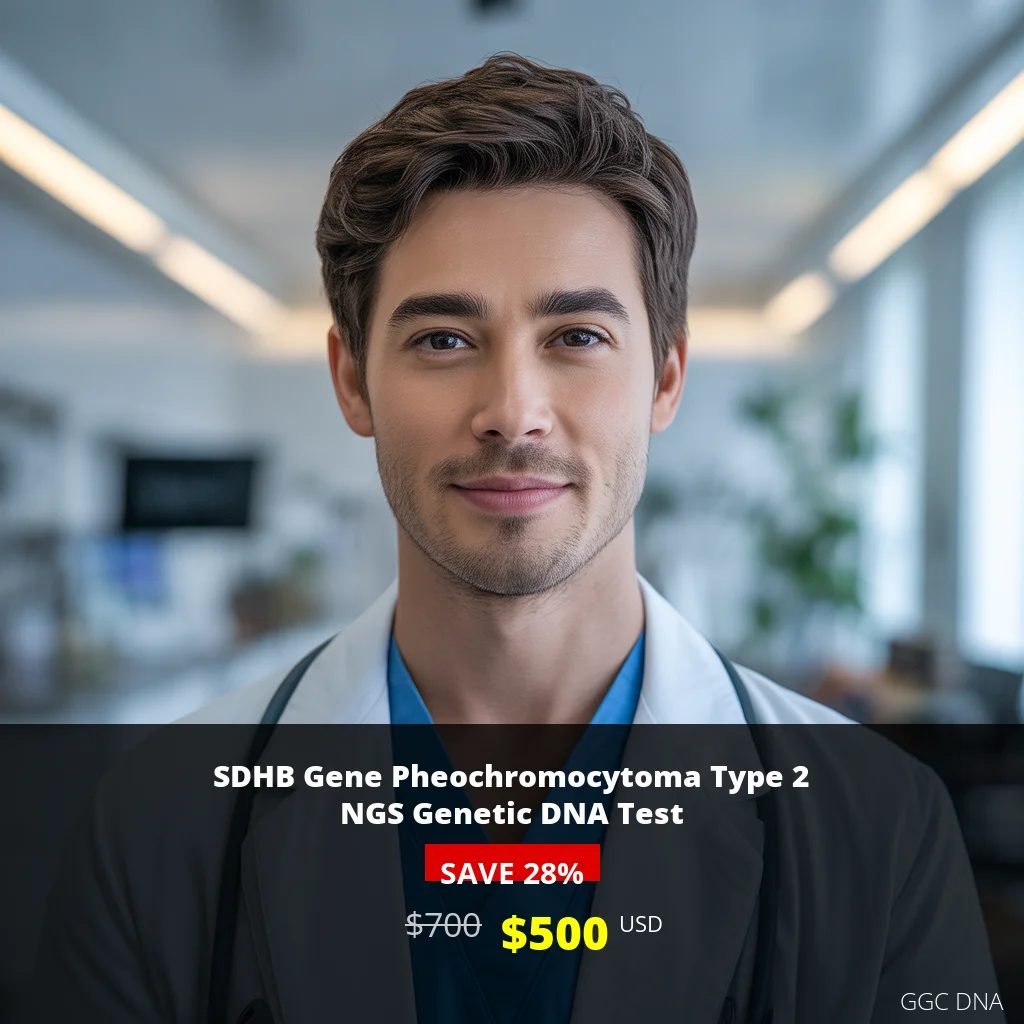SDHB Gene Pheochromocytoma Type 2 NGS Genetic DNA Test
Comprehensive Introduction to SDHB Genetic Testing
The SDHB Gene Pheochromocytoma Type 2 NGS Genetic DNA Test represents a groundbreaking advancement in hereditary cancer risk assessment. This sophisticated diagnostic tool utilizes next-generation sequencing (NGS) technology to analyze the SDHB gene, which plays a critical role in cellular energy production and tumor suppression. Mutations in the SDHB gene are strongly associated with hereditary pheochromocytoma and paraganglioma syndromes, rare neuroendocrine tumors that can develop in adrenal glands or throughout the nervous system.
Understanding your genetic predisposition to these conditions is essential for proactive healthcare management. Early detection of SDHB gene mutations enables personalized surveillance protocols, timely interventions, and informed family planning decisions. Our comprehensive testing approach provides patients and healthcare providers with the critical information needed to develop targeted prevention strategies and optimize long-term health outcomes.
What the SDHB Genetic Test Measures and Detects
This advanced genetic test specifically targets and analyzes the SDHB (succinate dehydrogenase complex iron sulfur subunit B) gene using cutting-edge next-generation sequencing technology. The test detects:
- Pathogenic variants and mutations in the SDHB gene
- Single nucleotide variants (SNVs) and small insertions/deletions
- Copy number variations (CNVs) that may be missed by traditional sequencing methods
- Germline mutations associated with hereditary pheochromocytoma-paraganglioma syndrome type 2
The SDHB gene encodes a critical component of mitochondrial complex II, which is essential for cellular respiration and energy production. Mutations in this gene disrupt normal cellular function and significantly increase cancer risk, particularly for pheochromocytomas, paragangliomas, and other associated malignancies.
Who Should Consider SDHB Genetic Testing
This comprehensive genetic test is recommended for individuals who meet specific clinical criteria or present with concerning symptoms:
Clinical Indications and Symptoms
- Personal history of pheochromocytoma or paraganglioma at any age
- Family history of SDHB-related tumors or known SDHB gene mutations
- Early-onset (before age 40) adrenal tumors or neuroendocrine cancers
- Multiple primary tumors or bilateral adrenal involvement
- Unexplained hypertension, palpitations, headaches, or sweating episodes
- Patients with metastatic pheochromocytoma or paraganglioma
- Individuals with personal or family history of renal cell carcinoma, GIST tumors, or pituitary adenomas
High-Risk Populations
- Individuals with a first-degree relative diagnosed with SDHB-related conditions
- Patients with suspicious imaging findings suggesting neuroendocrine tumors
- Those with elevated catecholamine levels or related biochemical markers
- Young patients (under 50) with any endocrine-related cancers
Significant Benefits of SDHB Genetic Testing
Undergoing SDHB genetic testing provides numerous advantages for patients and their families:
Early Detection and Prevention
- Enables proactive surveillance and early tumor detection
- Facilitates timely intervention before complications develop
- Reduces morbidity and mortality through targeted monitoring
- Provides opportunity for preventive surgical interventions when appropriate
Personalized Healthcare Management
- Customized screening protocols based on genetic risk
- Tailored treatment approaches for detected tumors
- Informed decisions regarding family planning and reproductive options
- Comprehensive risk assessment for associated cancers
Family Impact and Genetic Counseling
- Identifies at-risk family members who may benefit from testing
- Provides clarity for reproductive decision-making
- Reduces anxiety through definitive risk assessment
- Enables cascade testing within families
Understanding Your Test Results
Interpreting SDHB genetic test results requires careful consideration and professional guidance:
Positive Result Interpretation
- A pathogenic mutation detected indicates increased cancer risk
- Regular surveillance imaging and biochemical testing recommended
- Family members should consider genetic testing
- Consultation with oncology and genetics specialists essential
Negative Result Interpretation
- No known pathogenic SDHB mutations detected
- May significantly reduce (but not eliminate) hereditary risk
- Continued routine health monitoring still recommended
- Consider testing for other genetic syndromes if clinical suspicion remains
Variant of Uncertain Significance (VUS)
- Genetic change identified with unclear clinical significance
- Management based on personal and family history
- Periodic reclassification may occur as research advances
- Family studies may help clarify variant significance
Test Details and Pricing
| Test Component | Details |
|---|---|
| Test Name | SDHB Gene Pheochromocytoma Type 2 NGS Genetic DNA Test |
| Regular Price | $700 USD |
| Discount Price | $500 USD |
| Turnaround Time | 3 to 4 Weeks |
| Sample Type | Blood, Extracted DNA, or One Drop Blood on FTA Card |
| Testing Method | Next-Generation Sequencing (NGS) Technology |
| Specialty | Oncology Genetics |
Pre-Test Requirements and Preparation
Before undergoing SDHB genetic testing, patients should complete the following:
- Comprehensive clinical history documentation
- Genetic counseling session with certified genetic counselor
- Development of detailed pedigree chart documenting family cancer history
- Informed consent process explaining test implications and limitations
- Discussion of potential psychological impacts and insurance considerations
Nationwide Testing Availability
We proudly offer comprehensive genetic testing services across the United States with convenient locations in all major metropolitan areas including New York, Los Angeles, Chicago, Houston, Phoenix, Philadelphia, San Antonio, San Diego, Dallas, San Jose, and many other cities. Our network of certified collection facilities ensures accessible testing for patients nationwide.
Take Control of Your Genetic Health Today
Don’t wait to gain critical insights into your hereditary cancer risk. The SDHB Gene Pheochromocytoma Type 2 NGS Genetic DNA Test provides life-saving information that can transform your healthcare journey. Our team of genetic specialists, oncologists, and certified counselors are ready to support you through every step of the testing process.
Call us today at +1(267) 388-9828 to schedule your genetic counseling session and book your test. Take the first step toward personalized cancer prevention and proactive health management. Early detection through genetic testing can save lives and provide peace of mind for you and your family.
Our dedicated patient coordinators are available to answer your questions, discuss insurance coverage options, and help you understand the testing process. Contact us now to begin your journey toward comprehensive genetic health assessment.







